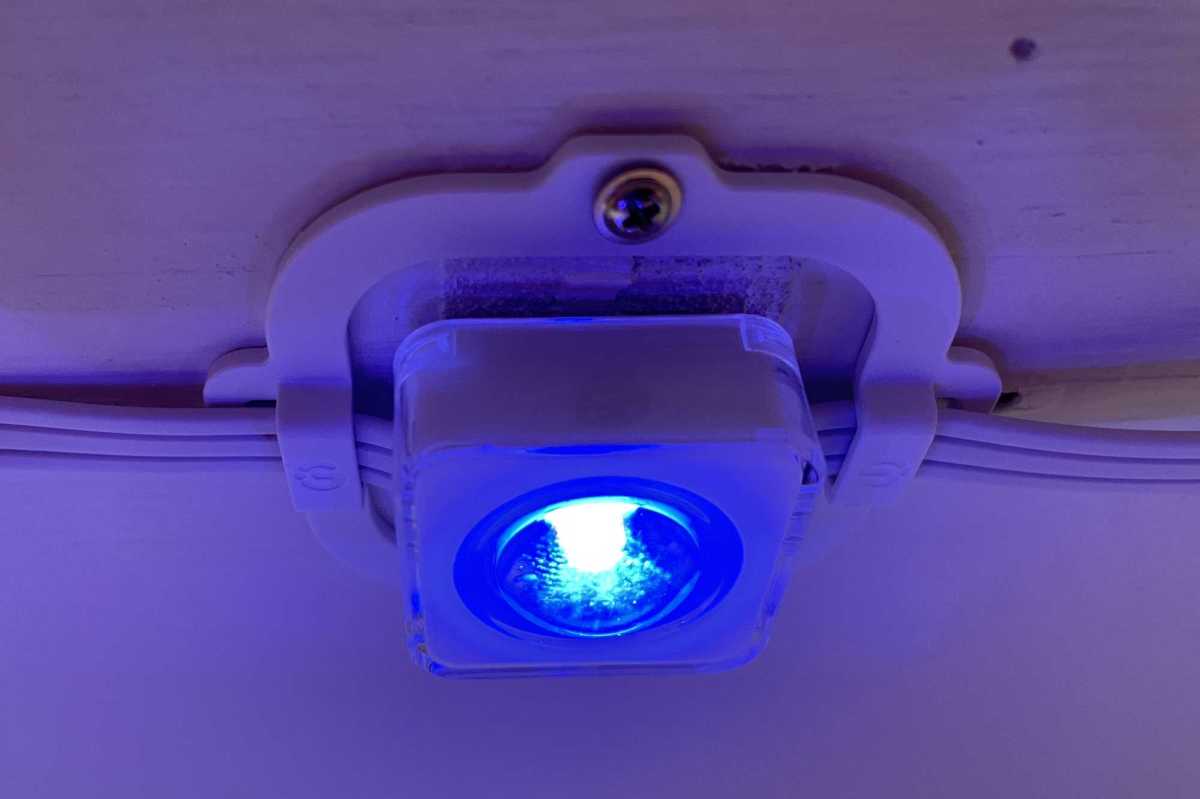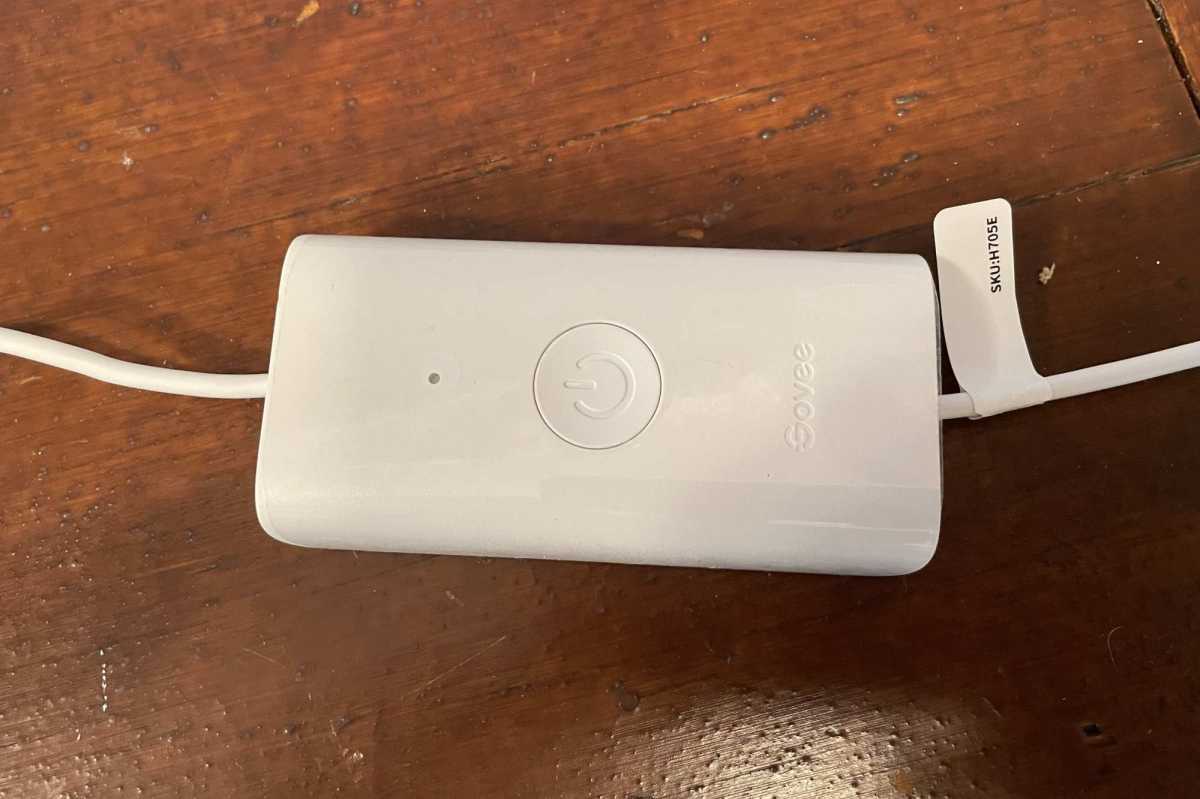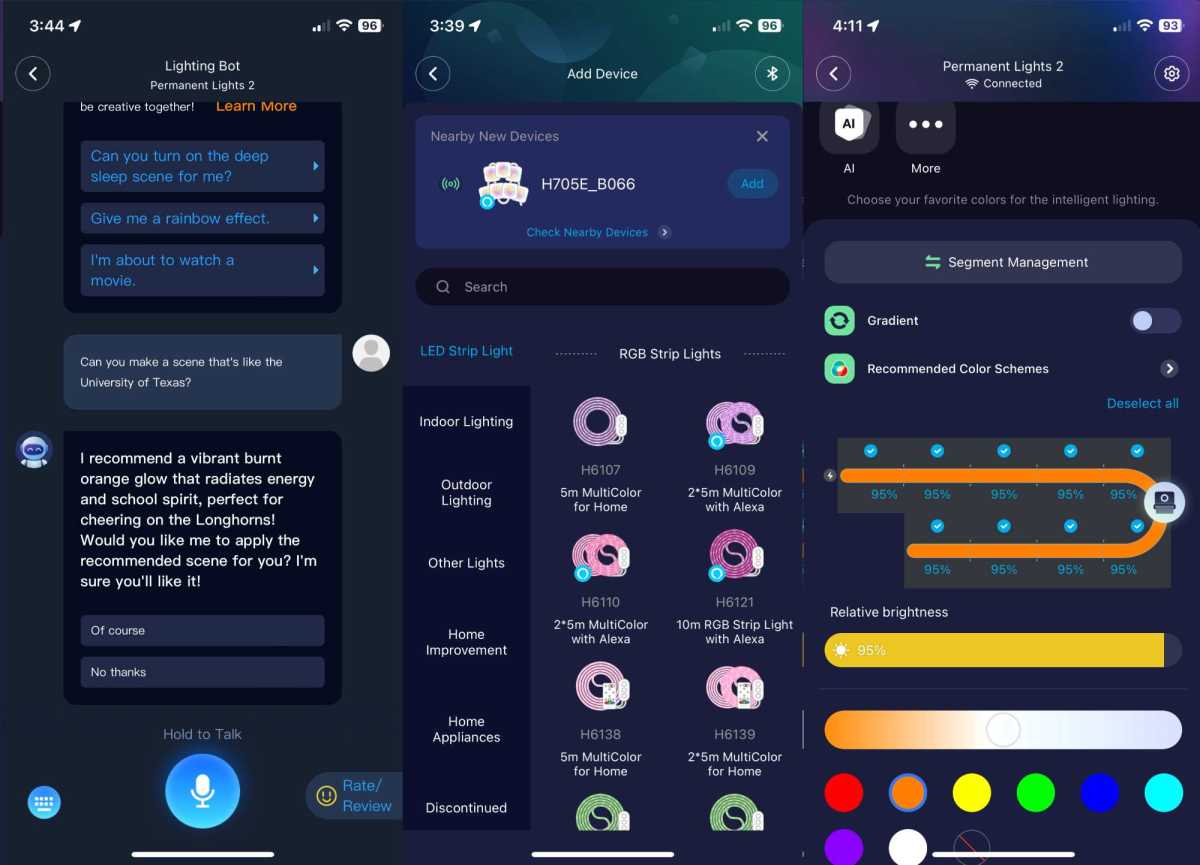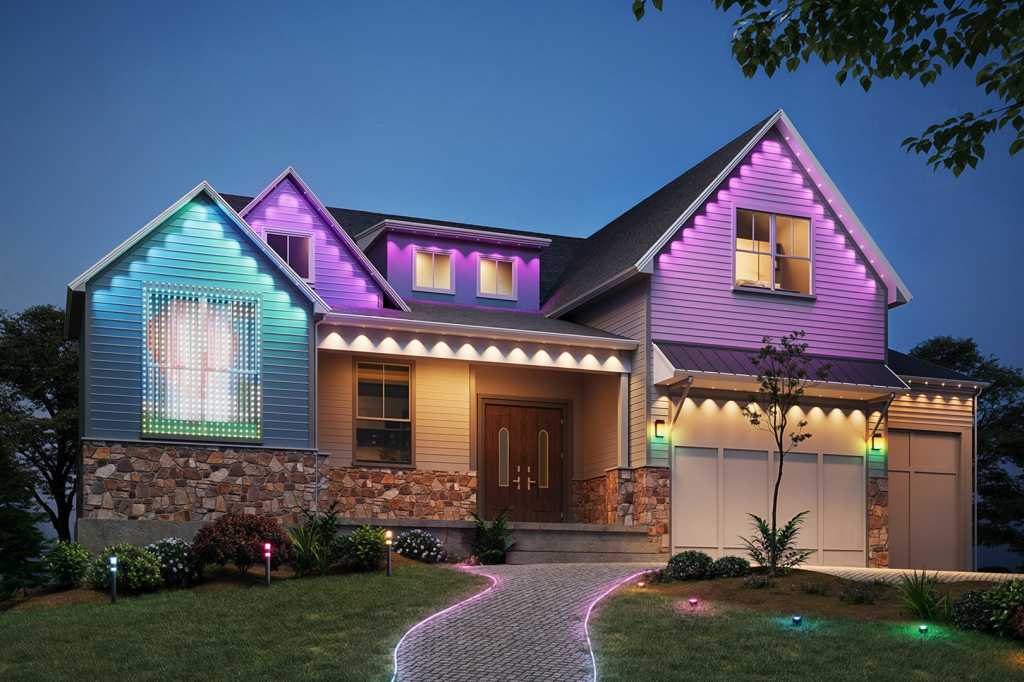Expert's Rating
Pros
- Excellent brightness and rich, immersive colors
- Reasonably easy setup, with added flexibility in placement available
- So many scene modes
Cons
- “AI” design feature didn’t always work
- Lights may be too far apart for some homes
- A bit pricey
Our Verdict
This permanent outdoor lighting solution is sturdy and offers high-quality light with plenty of configuration options.
Price When Reviewed
This value will show the geolocated pricing text for product undefined
Best Pricing Today
The trouble with putting holiday lights on your house is, of course, twofold: You not only have to string them up, you also have to take them back down–every year. You could, of course, put your lights up and leave them up, but having little bulbs hanging from your eaves isn’t the most aesthetic look for 11 months out of the year. And if you do, well, you’re that house.
Permanent smart lights offer a healthy compromise. These represent a more discreet, ruggedized lighting option that is designed to be unobtrusive, without visible bulbs, provided you have eaves that you can tuck the wires under.
Govee launched its first permanent outdoor lighting system in 2022, and it was recently updated with this, the appropriately named Govee Permanent Outdoor Lights 2. The concept hasn’t changed much since the first iteration, working something like a hybrid between string lights and strip lights.
All told, the lights are very bright, vibrantly colorful, and look great, though sometimes the individual lights feel too far apart
Design
Like strip lights, the system features a thick cable that you permanently mount to the wall or ceiling with adhesive and/or screws. But like a string lighting system, the cable itself does not light up. Instead, individual LED units are spaced out along the cable every 16 inches. The system is available with either white cabling or black cabling, in lengths ranging from 50 ($180) to 150 feet ($450). Reviewed here is the 100-foot system ($300).
This review is part of TechHive’s in-depth coverage of the best smart bulbs.
The main changes compared to Govee’s older permanent lighting system include the following: The new system is 55 percent brighter (now at 40 lumens per light) and supports tunable white light in addition to colors. Govee has added more types of effects (with over 82 presets and many more downloadable) as well as support for Matter, easing setup.
Installation
Installation is similar to the process for hanging strip lights, though since you’re doing this outside and potentially in the elements, some additional steps to secure the lights and wiring must be undertaken.
Each light is embedded in its own waterproof cube (rated IP67, denoting a dust-tight design that can withstand being dunked in a meter of water for 30 minutes) and has an adhesive pre-applied to the reverse of the lighting element.

Lights are affixed to the wall via both adhesive and screws.
Christopher Null/Foundry
To affix the lights, simply run the cable along your chosen surface, peel the backing off, and stick the lights where you want them. To fully secure the system, a plastic clip fits over each lighting element. This clip holds the cable in place and affixes to the wall/ceiling with two screws. All hardware needed is included.
The lights are broken up such that after every 12 LEDs you hit a waterproof connector placed in between each segment. A hundred feet of LED bulbs contain six of these segments (and 72 lights). The advantage of this design is that you can use the three included extension cords (two 4 feet long, one 12 feet long) included in the box to get around obstacles like a poorly placed column or window, or to wrap around corners–anywhere you don’t want lights. It’s up to you to mix and match the segments to work with the design of your house. Sketching this out on paper beforehand is probably a good idea.
Note that you also need to consider how to power the device and where to place the control box (which has a single button on it) and the sizeable A/C adapter. There’s an extra 15 feet of cable before you get to the first light, and the control box is only rated IP65 (still dust-tight, but resistant to just water jets rather than full-on immersion). Stashing the box in a corner with a collection of hooks and zip ties is probably your best bet, but you may need additional extension cords to complete the job.

The control box is rated IP65, meaning it’s dust-tight and resistant to jets of water.
Christopher Null/Foundry
Setting all of this up is fairly basic, but if you’re designing for canonical holiday lights along the roof line, it will mean a lot of time on a ladder and probably a plethora of dropped screws in the process. Plan your weekend accordingly.
Thanks to Matter, onboarding is trivial, and you’ll want to use the Govee app to interact with the lights due to the bonanza of features available within it.
Light modes and features
By default, lights are broken into groups of four, though you can address each bulb individually in the “finger sketch” mode if you really want to get granular. The dozens and dozens of available scenes are also able to address each bulb individually and dynamically, if you want to set a scene that lets lights change color, brightness, pulse, strobe, or just about anything else. All of that is, of course, half the fun here.
Additional options include numerous color-changing music modes that can work with sound captured by the control box or via your mobile device, and a fun new AI mode that lets you offer a verbal description of the lighting you want or upload a photograph for inspiration. My request for a University of Texas color scheme came out perfectly, but the app inexplicably said my picture of a Chicago-style hot dog wouldn’t work for a color palette. As with all of Govee’s lighting products, you can easily get lost for ages in all the options, modes, and themes available.

Everything has AI in it now, including Govee’s lighting design system. Meanwhile, setup is easy (center), and you can manually adjust the LED colors (right.)
Christopher Null/Foundry
Performance
All told, the lights are very bright, vibrantly colorful, and look great, though sometimes the individual lights feel too far apart. On a very large house this will be less noticeable, but smaller rooflines may feel a little naked.
The system uses surprisingly little juice: I measured peak power draw for the 100-foot system at 22 watts, which seems very reasonable.
Should you buy the Govee Permanent Outdoor Lights 2?
Three hundred bucks for a 100-foot system is certainly more than you’ll pay for traditional bulbs from the hardware store, but if you had to pay someone to install your lights for you every season (and again to take them down), the calculus becomes a lot clearer.
The big question with any product like this is of course whether it will stand the test of time after being exposed to the elements year after year. I can’t answer that today, but it does seem plenty sturdy thanks to both the thick cabling and the screw-in clips that hold the lights in place. (Adhesive will surely fail over time.)


